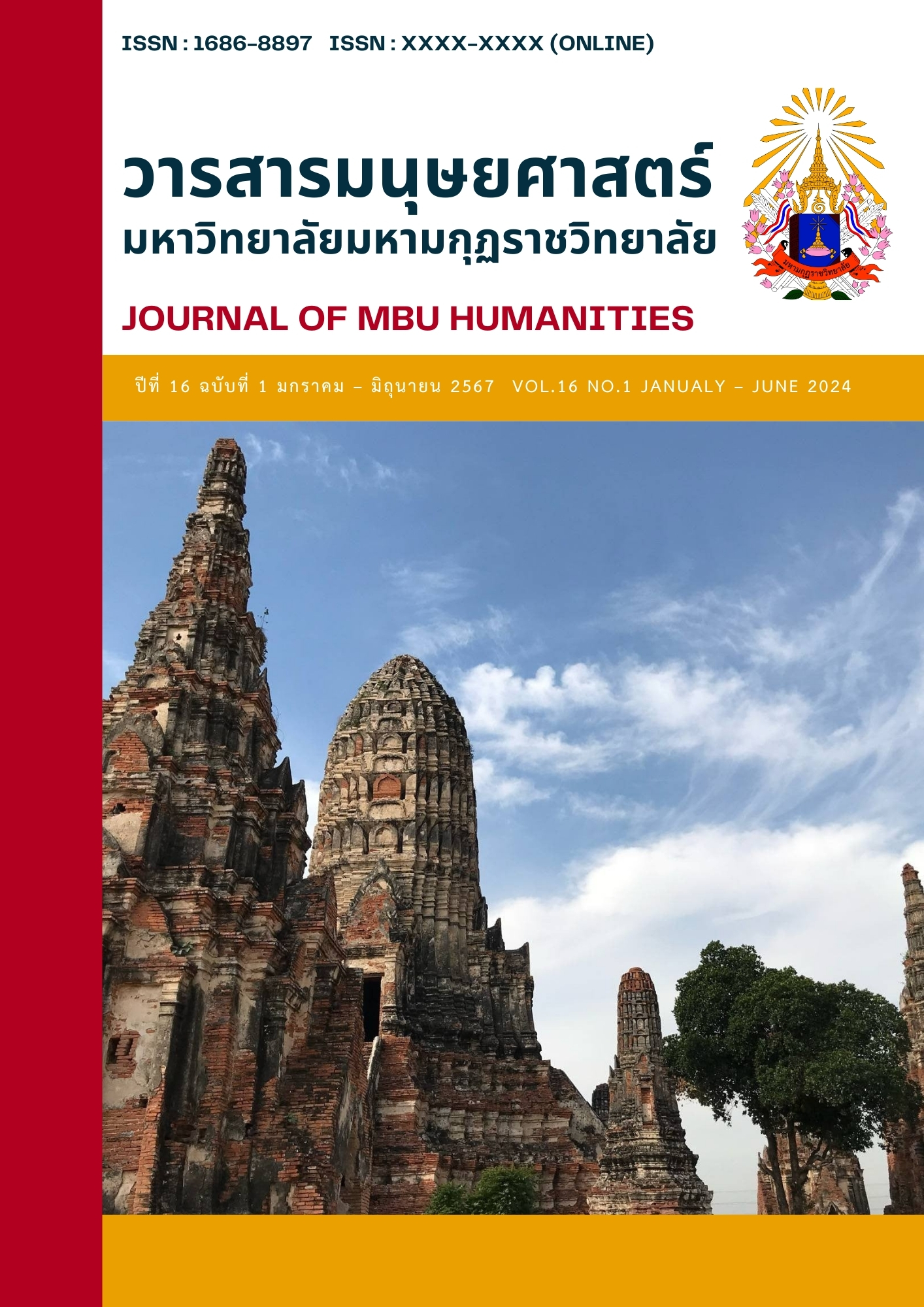The social impact of presenting a reflection of children and adolescents in the Thai drama series “The Betrayal” that has indirectly affected the recession of the population crisis.
Main Article Content
Abstract
This article is a study of the social impact of presenting reflections of children and youth in the Thai drama series "The Betrayal" that has indirectly affected the recession of the population crisis in the form of soft power.
The drama series “The Betrayal” is a re-produced version of the Thai drama series (Thai Series) which was presented on 3 HD Channel. The content presents problems related to families that affect children and adolescents in many ways. The aforementioned drama series presents problems that occur with children and youth whose causes arise from factors within the family and problems that arise from external factors of the family or social factors. This indirectly results in creating feelings of difficulty in raising youth while growing up in a society with various problems. By presenting the aforementioned problem in such a manner, it may have an indirect impact on the population recession crisis. Analyzed from the phenomenon of the continuous decline of the Thai population as shown in the regression chart and data from the survey of NIDA Poll, it was found that the results of the survey and the issues appearing in the drama series “The Betrayal” edition in the form of a Thai series are consistent in many ways, including: 1) Don’t want to increase the cost of raising children. 2) Worrying about how your child will live in the current social situation? 3) Don't want to have the burden of taking care of children. 4) Wanting an independent life. 5) Afraid of not being able to raise children well and 6) Wanting to focus more importance on work.
Article Details
References
กฤตพร แซ่อึ๊ง. (2562). นโยบาย Soft power กับการส่งออกวัฒนธรรมของเกาหลีใต้ ค.ศ.1997-ปัจจุบัน. บทความวิจัย. คณะอักษรศาสตร์ มหาวิทยาลัยศิลปากร หลักสูตรอักษรศาสตร์บัณฑิต สาขาวิชาเอเชียศึกษา.
เกมรักทรยศ. (2566). ละครชุด. สถานีวิทยุโทรทัศน์ไทยทีวีสีช่อง 3. ดิจิทัล ช่อง 33.
จินตนา วัชรสนิธุ รวิวรรณ คำเงิน ชนกพร ศรีประสาร และณัชนันท์ ชีวานนท์. (2561). ปจจัยที่มีความสมัพันธกับความ รุนแรงในครอบครัวของเด็กวัยเรียน. วารสารเครอืขายวิทยาลัยพยาบาล และการสาธารณสุขภาคใต, ปีที่ 5 ฉบับที่ 2.
นฤทธิ์ ดวงสุวรรณ หริรักษ แกวกับทอง วัลภา ฐานกาญจน นัสรินทร และแซสะ ฮามีดะห เจะแต. (2565). เด็กและความรุนแรงในครอบครัว. วารสารสังคมสงเคราะหศาสตร, ปที่ 30 ฉบับที่ 1.
ราชกิจจานุเบกษา (2566), คำแถลงนโยบาย. เล่ม 140 ตอนพิเศษ 221ง, 11 กันยายน.
สิรวิชญ์ ปัทมะสุวรรณ์ และพรสรร วิเชียรประดิษฐ์. (2564). ปรากฏการณ์การลดลงของประชากรประเทศไทย: การวิเคราะห์ระดับอำเภอและเมือง. วารสารสาระศาสตร์, ฉบับที่ 3.
เอกรงค์ ปั้นพงษ์. (2566). พลังการสื่อสารผ่านแนวคิดอำนาจละมุน (Soft power) ของประเทศญี่ปุ่นในหนังสือการ์ตูนยอดตพิมพ์อันดับ 1 ของโลก “วันพีซ”. วารสารนิเทศศาสตร์ปริทัศน์, ปีที่ 27 ฉบับที่ 2.
"อิ๊งค์" สร้าง Soft Power ยกระดับชีวิต ส่งออกวัฒนธรรมไทย สู่สายตาชาวโลก. เผยแพร่เมื่อ 15 พ.ย. 2566 เข้าถึงเมื่อ 11 มกราคม 2567 เข้าถึงได้จาก https://www.thairath.co.th/news/politic/2740932


